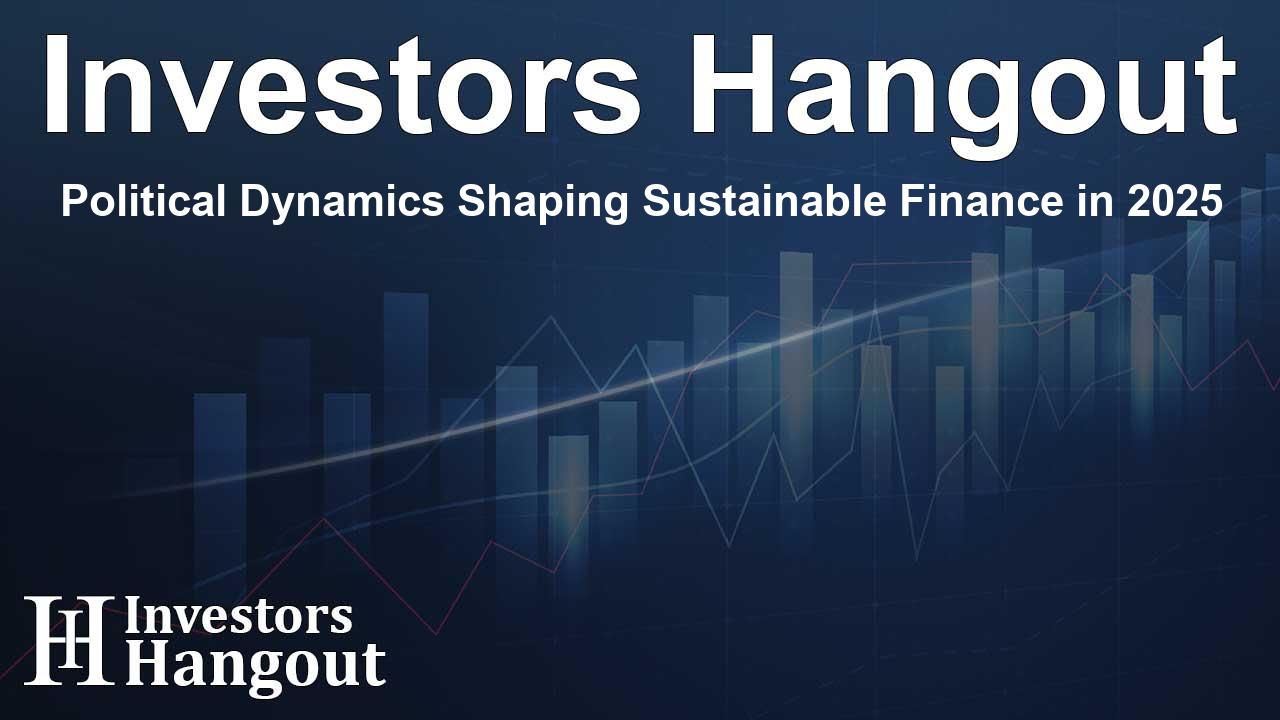Political Dynamics Shaping Sustainable Finance in 2025

The Future of Sustainable Finance Amid Political Shifts
A turbulent year for sustainable finance is on the horizon as political landscapes shift significantly. The anticipated return of a familiar figure to the U.S. presidency may lead to further regional disparities in everything from fund flows to legal regulations surrounding this vital sector.
The Climate Crisis and Policy Responses
Despite witnessing record-breaking temperatures and increasingly severe weather events globally, the response from governments has been criticized for its sluggishness. The world's ambitious goal of limiting global warming remains unfulfilled, prompting calls for more decisive action.
Regulatory Expansion and Economic Pressures
Globally, regulators are tightening the rules governing finance and corporate behavior to expedite reductions in harmful carbon emissions. However, this transformation is uneven, with the United States trailing behind European measures. Predictions suggest that political dynamics could further complicate this scenario.
Experts believe that the forthcoming political environment in the U.S. will catalyze a backlash against Environmental, Social, and Governance (ESG) initiatives, potentially widening the existing gap with Europe. Investors may now prioritize long-term risk-adjusted returns in response to rising concerns about political and reputational risks.
Investor Sentiment and Anticipated Regulations
In a recent survey, over half of U.S. executives expressed concerns about new sustainability regulations. In comparison, 60% of British executives and a notable 80% in Singapore felt similarly, highlighting a greater urgency for regulatory adaptation in these areas.
Corporate Adjustments to New Realities
As U.S. political realities evolve, many firms are reconsidering their climate commitments to navigate potential backlash. This shifting corporate landscape was underscored recently when major U.S. banks exited a collaboration aimed at emission reductions, indicating a new approach to environmental responsibility.
Legal Challenges and Their Impact on Climate Efforts
Legal scrutiny on climate initiatives is mounting. Reports have shown that a significant percentage of climate litigation cases do not align with strategies aimed at reducing emissions, particularly within the U.S. It's evident that the current climate litigation landscape presents more questions than answers for sustainable finance moving forward.
Investment Trends: A Regional Overview
Recent data indicates a stark split in sustainable investment trends across regions. While U.S. funds experienced a staggering withdrawal totaling $15.9 billion, European funds attracted $37.3 billion. Moreover, the launch of new ESG-focused funds in the U.S. dwindled to just 7, in contrast to Europe's 189, underscoring a shifting investment climate.
For the first time, the number of sustainable funds closed outstripped those launched, affected by growing regulatory pressures in Europe alongside skepticism about the actual green credentials of some funds. These factors contributed to a slowdown in demand for sustainable investments compared to the broader market.
Opportunities Amid Challenges
Despite the challenges posed by the political landscape, many underlying demands driving sustainable finance remain robust. The global demand for green energy persists, and companies across various sectors are exploring climate technology to optimize costs even amidst political dissent.
As Leon Kamhi from Federated Hermes suggested, investors may evolve in their approach, focusing more on tangible impacts in the real economy. For sustainable finance to thrive, investments must yield economic returns that benefit both corporations and investors alike.
Frequently Asked Questions
What factors are driving changes in sustainable finance trends?
Changes in political leadership, regulatory shifts, and corporate responses to environmental issues are major factors influencing sustainable finance trends.
How is the U.S. outlook on sustainable finance shifting?
The outlook in the U.S. is becoming more conservative, especially with anticipated political backlash against ESG initiatives.
What role do regulations play in sustainable finance?
Regulations are crucial as they shape how corporations engage in sustainable practices and influence investor confidence in the market.
Why are sustainable funds performing differently in the U.S. compared to Europe?
Regulatory challenges, market skepticism, and a reduced number of new fund launches contribute to the disparity in sustainable fund performance between these regions.
What future trends can be expected in sustainable finance?
Increased corporate focus on climate technology and tangible impacts, alongside ongoing demand for green investments, indicates a complicated but potentially positive future for sustainable finance.
About The Author
Contact Riley Hayes privately here. Or send an email with ATTN: Riley Hayes as the subject to contact@investorshangout.com.
About Investors Hangout
Investors Hangout is a leading online stock forum for financial discussion and learning, offering a wide range of free tools and resources. It draws in traders of all levels, who exchange market knowledge, investigate trading tactics, and keep an eye on industry developments in real time. Featuring financial articles, stock message boards, quotes, charts, company profiles, and live news updates. Through cooperative learning and a wealth of informational resources, it helps users from novices creating their first portfolios to experts honing their techniques. Join Investors Hangout today: https://investorshangout.com/
The content of this article is based on factual, publicly available information and does not represent legal, financial, or investment advice. Investors Hangout does not offer financial advice, and the author is not a licensed financial advisor. Consult a qualified advisor before making any financial or investment decisions based on this article. This article should not be considered advice to purchase, sell, or hold any securities or other investments. If any of the material provided here is inaccurate, please contact us for corrections.
